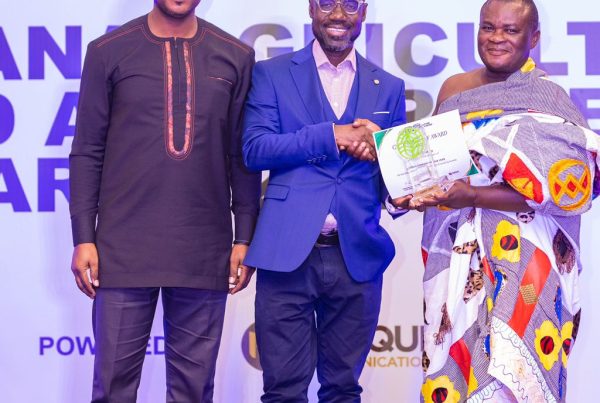Over the years innovation has driven the development of new tools and services to tackle different areas of the agricultural value chain…now including, of course, exciting new technologies using mobile phones. All of these innovations aim to improve food production and security, the livelihoods of individual farmers, and the business of farming in general. But the majority of food production remains in the hands of rural farmers who have little or no access to these quickly moving we-can’t-wait-for-anyone technologies. So one big question remains unanswered: Why are the best technologies not reaching smallholder farmers? And how do we ensure that the technologies are relevant to the farming community and actually improving the livelihoods of farmers? Isaac Boateng (IB) and Philip Asihene (PA) of the Esoko monitoring and evaluation team share some insights.
Esoko: What are some of the challenges you face out there in the field?
PA: Lack of education and high rates of illiteracy are major problems. Though almost all farmers Esoko has dealt with have mobile phones and have access to phones, only a few know how to use the phones apart from making and receiving calls. Many cannot read and write and so understanding the messages we send them is difficult – some have to rely on the educated friends, children or others to interpret for them.
Esoko: Do you face any challenges from the mobile network operators?
PA: I think our major problem is the fact that some of the farming areas are still out the coverage areas of these networks, and some areas just have poor network coverage. Sometimes we see farmers standing at specific points in their community to get connected. Imagine the sight of about 20 people stationed at a point and making calls, checking or sending messages. This limits the effectiveness of any technology solution deployed on the mobile phone.
Esoko: Isaac, do farmers have any concerns about the technology solutions themselves?
IB: Oh yeah, we have one big challenge with standardization. Most new technologies adopt current world standards of measurement. But the farmers in the rural areas are still using local standards – what we call “local measures”. We started delivering information in the standard measure of kilos years back, and we’ve have learned the hard way that a current technology may be irrelevant if what it delivers does not conform to local standards. We now deliver information based on bags, tins, etc. – not kilos.
Esoko: But can’t the technology providers be the game changers?
IB: We cannot do this alone. This must start at the policy level. Government policies also affect how technology benefits smallholder farmers. What is the government’s policy on marketing of local agricultural produce? If it has been done for fish and meat, why can’t measurements also be standardized for agricultural crop produce? Right technologies must go with right policies. Even infrastructure affects effectiveness of any technology. Some of our farmers say they now know of better buying prices in other markets, but they cannot transport their farm produce to such markets because the roads are not usable during certain seasons. However, the technology world cannot wait for government and so solution providers like us have to find alternative means of ensuring farmers reap the maximum benefits from their solutions.
Esoko: Do you think current solutions are necessarily complex?
IB: You see, a typical farmer would not read tutorials before using a phone. So when you are thinking of any technology for the farmer, it must be as simple and basic as possible; it should attract less effort to understand and use. If you develop a complex solution on a simple mobile phone, it will still be irrelevant to the farmer. For example, Esoko’s price alerts are simple and straight-forward messages that just tell the farmer the wholesale or retail price of a commodity in a particular market. Any ambiguity in the message is likely to confuse the farmer and render the service meaningless.
Esoko: So Philip, how can we address the issue of technological illiteracy?
PA: First of all I think there must be extensive training and education on the tools used to deliver the product or service. We train farmers on how to open their inbox, send SMSs as well as how to delete them when their inboxes are full. We always have to deal with the challenge of mobile navigation first, even before training on the service itself, otherwise the service is of no use. Farmers need training on their own devices through which mobile solutions are delivered. Sometimes the provider needs to go beyond their solution and train or inform the farmer on the other issues. A good example of this is when farmers lose their SIM cards, purchase a new phone number,and expect to receive SMS alerts from Esoko once they put the new number in the old phones.We have to tell them to go for the same number or inform us of their new numbers, because of course we identify them by the number, not the phone itself.
Esoko: And after training how do you ensure the information delivered is helpful?
PA: For us timeliness is key as far as any solution is concerned. Farmers require services that are time sensitive, so we do our best to ensure that the most recent market information is delivered to users right when they need it.
The role of technology should be to transform business and improve farmer livelihoods. With agriculture in Africa projected to remain smallholder for some time, it is imperative that the new tools provide farmers with timely, relevant and local knowledge.



